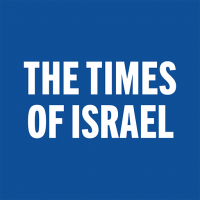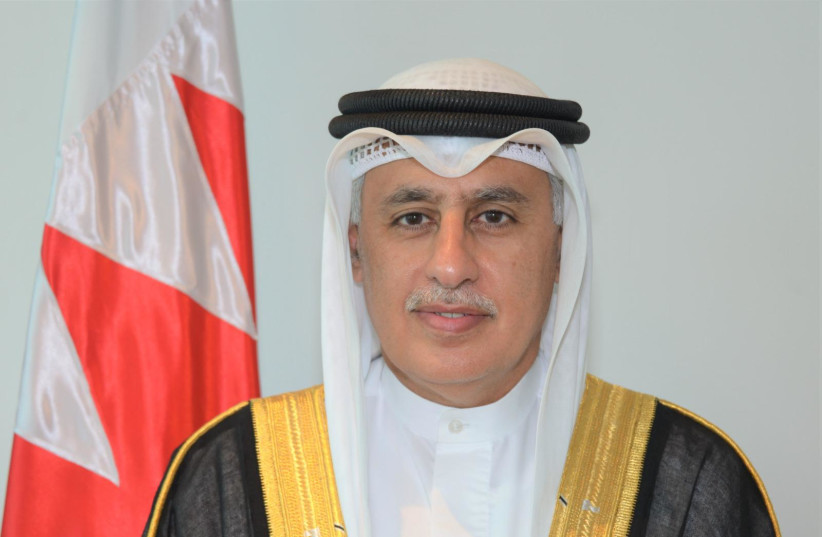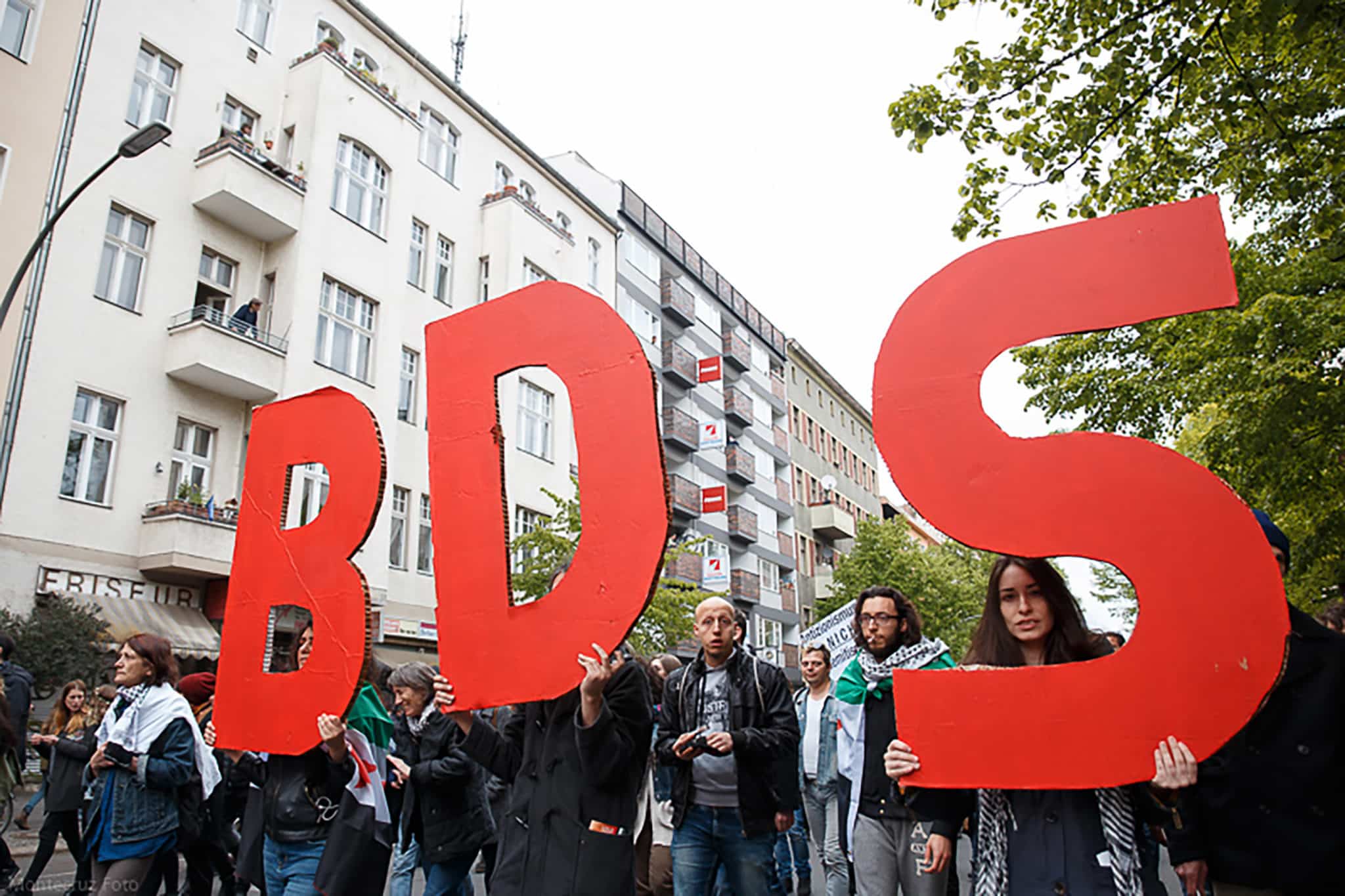Navigation
Install the app
How to install the app on iOS
Follow along with the video below to see how to install our site as a web app on your home screen.

Note: This feature currently requires accessing the site using the built-in Safari browser.
More options
You are using an out of date browser. It may not display this or other websites correctly.
You should upgrade or use an alternative browser.
You should upgrade or use an alternative browser.
Boycott Israel
- Thread starter fairandbalanced
- Start date
RE: Boycott Israel
SUBTOPIC: Negotiated Exchange (Land for Peace)
P T Tinmore, et al,
So, any economic interference into the money supply, transportation crossing, imports or exports, any electronic communication interruption, would not be illegal.
But Israel would not think on that level. Why, because they have a greater responsibility to the Arab Palestinian people on the matter of survival than does their own leadership.

Most Respectfully,
R
SUBTOPIC: Negotiated Exchange (Land for Peace)
P T Tinmore, et al,
(COMMENT)Boycotting Israel Is Not A Crime, Says European Human Rights Court
So, any economic interference into the money supply, transportation crossing, imports or exports, any electronic communication interruption, would not be illegal.
But Israel would not think on that level. Why, because they have a greater responsibility to the Arab Palestinian people on the matter of survival than does their own leadership.
Most Respectfully,
R
- Dec 6, 2009
- 77,705
- 4,168
- 1,815
#FreePalestine : a conversation with Omar Barghouti, co-founder of the BDS-movement
Isn’t he the Egyptian who was educated at Tel Aviv university and lives in Israel?
Sixties Fan
Diamond Member
- Mar 6, 2017
- 53,618
- 10,412
- 2,140

Wellesley College Newspaper Distances Itself From BDS-Linked ‘Mapping Project’
Supporters of the Boycott, Divestment, and Sanctions campaign. Photo: Alex Chis. The campus daily of Wellesley College has distanced itself …
Sixties Fan
Diamond Member
- Mar 6, 2017
- 53,618
- 10,412
- 2,140
Striking Australian Higher Education Union Calls for Ban on Visits to Israel, Rejects IHRA Definition of Antisemitism
The motion was proposed by Fahad Ali, a boycott, divestment, and sanctions (BDS) advocate.
 www.jewishpress.com
www.jewishpress.com
RE: Boycott Israel
SUBTOPIC: Australian Higher Ed Union
※→. Sixties Fan, et al,
I AGREE this is noteworthy, but only as a road sign down the path of self-destruction.

Every once in a while, you alert us to something that appears (when first noticed) a very serious matter. Yet, upon the expansion of the cursory look, it's only a Typhon in a teacup. I suspect that if you asked the National Tertiary Education Union to include the Sydney University demand for soft toilet paper (TP) in the Campus Rest Rooms, they would have added that to their portfolio on the grounds that human dignity was abused when forcing the campus population to use the ruffer TP without a democratic process → denying them the right to derrière determination.
These arrogant - brazenly impudent claims of "racist endeavors" and accusing the Jews as a people of inventing or exaggerating the Holocaust is just the bread and butter of the Hostile Arab Palestinian (HoAP) propaganda campaign. I have a doctorate, but I do not claim any special voice over any other in this attempted march to overrun Israel.
The pursuit of these indolent condemnations → putting themselves a notch above the leadership in the world at that time → because you don't think the outcome was correct → well that just astounds me. I don't have a clue as to who witnessed what from where. But I'm passing through my 70th year. And I have yet to see an Arab Palestinian rise over the others and assume a place of distinction.
Well, I would probably make an exception for Jasser Afat (probably assassinated by his own kind).
.

Most Respectfully,
R
SUBTOPIC: Australian Higher Ed Union
※→. Sixties Fan, et al,
I AGREE this is noteworthy, but only as a road sign down the path of self-destruction.
Every once in a while, you alert us to something that appears (when first noticed) a very serious matter. Yet, upon the expansion of the cursory look, it's only a Typhon in a teacup. I suspect that if you asked the National Tertiary Education Union to include the Sydney University demand for soft toilet paper (TP) in the Campus Rest Rooms, they would have added that to their portfolio on the grounds that human dignity was abused when forcing the campus population to use the ruffer TP without a democratic process → denying them the right to derrière determination.
These arrogant - brazenly impudent claims of "racist endeavors" and accusing the Jews as a people of inventing or exaggerating the Holocaust is just the bread and butter of the Hostile Arab Palestinian (HoAP) propaganda campaign. I have a doctorate, but I do not claim any special voice over any other in this attempted march to overrun Israel.
The pursuit of these indolent condemnations → putting themselves a notch above the leadership in the world at that time → because you don't think the outcome was correct → well that just astounds me. I don't have a clue as to who witnessed what from where. But I'm passing through my 70th year. And I have yet to see an Arab Palestinian rise over the others and assume a place of distinction.
Well, I would probably make an exception for Jasser Afat (probably assassinated by his own kind).
.
Most Respectfully,
R
- Dec 6, 2009
- 77,705
- 4,168
- 1,815
Sixties Fan
Diamond Member
- Mar 6, 2017
- 53,618
- 10,412
- 2,140

Israel Signs Historic Agricultural Agreement with Bahrain | United with Israel
Since the Abraham Accords were signed, Israel has seen the signing of new trade agreements and cultural exchanges with these four nations on a regular basis.
Sixties Fan
Diamond Member
- Mar 6, 2017
- 53,618
- 10,412
- 2,140
The Boycott, Divestment, and Sanctions (BDS) movement has been a total failure. It will never achieve its objective of destroying Israel, has not influenced Israeli policy one iota and has done far more harm to Palestinians than Israelis. You might think that intelligent people would recognize this; however, the ongoing campaign for an academic boycott of Israel demonstrates that no one should overestimate the mental acuity of pro-BDS professors.
One of the principal rationales behind boycotting Israel is the belief that the Afrikaner regime in South Africa was brought to its knees by applying BDS. There are vast differences between the two cases, not the least of which is that no one was trying to replace South Africa with another state. BDS proponents also overestimate the impact boycotts had on the regime.
(full article online )
 www.jns.org
www.jns.org
One of the principal rationales behind boycotting Israel is the belief that the Afrikaner regime in South Africa was brought to its knees by applying BDS. There are vast differences between the two cases, not the least of which is that no one was trying to replace South Africa with another state. BDS proponents also overestimate the impact boycotts had on the regime.
(full article online )
The academic boycott folly
The BDS movement has no interest in compelling the Palestinian Authority or Hamas to change their authoritarian ways; the focus is solely on virtue signaling and demonizing Israel.
Sixties Fan
Diamond Member
- Mar 6, 2017
- 53,618
- 10,412
- 2,140
Olympian triathlete Shachar Sagiv is set to be the first Israeli to compete in Saudi Arabia, as the countries see progressively thawing relations.
Sagiv is slated to participate on Saturday in the fifth round of the Super League Triathlon, a team-based cycling, swimming and running competition. He ranked the fastest cyclist in the most recent competition in Toulouse and was the eighth-best competitor overall.
Saudi Arabia, which does not generally allow Israelis to enter, has in the past few months begun to issue special visas to Israeli citizens, primarily businesspeople, Israeli news outlet Globes reported in May.
(full article online)

 www.timesofisrael.com
www.timesofisrael.com
Sagiv is slated to participate on Saturday in the fifth round of the Super League Triathlon, a team-based cycling, swimming and running competition. He ranked the fastest cyclist in the most recent competition in Toulouse and was the eighth-best competitor overall.
Saudi Arabia, which does not generally allow Israelis to enter, has in the past few months begun to issue special visas to Israeli citizens, primarily businesspeople, Israeli news outlet Globes reported in May.
(full article online)

In first, Israeli athlete to compete in Saudi Arabia amid thawing ties
Triathlete Shachar Sagiv says his participation in Super League is 'proof that sports connect peoples and countries'
Sixties Fan
Diamond Member
- Mar 6, 2017
- 53,618
- 10,412
- 2,140
Chairman Erel Margalit stressed the opportunity to increase cooperation via Israeli technology with Bahrain and countries across the region.

Bahrain’s Minister of Industry & Commerce visits Margalit Startup City
Chairman Erel Margalit stressed the opportunity to increase cooperation via Israeli technology with Bahrain and countries across the region.
- Dec 6, 2009
- 77,705
- 4,168
- 1,815
Session 1B This Wall Must Fall: BDS - It worked in South Africa, will it work in Palestine?
Session 1B This Wall Must Fall: BDS - It worked in South Africa, will it work in Palestine?
Arab losers gonna lose.
It's the one thing they're good at.
Sixties Fan
Diamond Member
- Mar 6, 2017
- 53,618
- 10,412
- 2,140
In most cases, the rating system assigns such companies a “controversy” label that inflates their overall ESG risk rating. In other cases, the system places companies on a “watchlist,” effectively a do-not-invest list, for activities that include supporting Israel’s efforts to protect civilians from terror attacks. Companies like Motorola Solutions and Elbit Systems appear on the watchlist because they provide technology that is part of Israel’s security barrier, which helped stop homicide bombers from blowing up city buses and crowded restaurants in the mid-2000s. A Morningstar Sustainalytics ”engagement” service periodically reaches out to let penalized companies know they’ll be excluded from investment portfolios unless they change their ways.
The double standards applied to Israel, a hallmark of the anti-Semitic boycott movement, are apparent in these ratings, too. Israel and China are nothing alike. One is a flourishing democracy with rule of law and an internationally respected judicial system; the other, an authoritarian regime conducting a genocide in Xinjiang. Yet somehow, Morningstar dings Israeli companies for so-called human rights controversies while Chinese companies get a pass.
What sources does Morningstar use to validate its underlying assumptions and document alleged misconduct? The list is long, but it includes publications from the UN Human Rights Council, Human Rights Watch, Amnesty International, all of which are part of an antisemitic campaign to smear the existence of a Jewish State as a racist endeavor. The list also includes a host of pro-BDS organizations that devote every waking minute to attacking companies operating in parts of Jerusalem, the West Bank, and the Golan Heights.
Morningstar initially brushed aside accusations of anti-Israel bias last year, but later commissioned an outside law firm, White & Case, to investigate its practices. Unsurprisingly, White & Case concluded there was no evidence of systemic bias against Israel in the ESG ratings. Yet a closer look at the firm’s report shows that White & Case let its client off the hook despite turning up ample evidence of bias. Then again, this is the same law firm that recently sponsored forums accusing Israel of apartheid.
Public analysis of White & Case’s flawed report published by the Foundation for Defense of Democracies, along with a series of news stories, prompted 19 state attorneys general to launch an investigation into potential deceptive business practices while 18 state financial officers wrote Morningstar with concern. Arizona’s Treasurer notified Morningstar it may be in violation of the state’s anti-BDS law – one of more than 30 in the country – which requires the state to divest its pension funds from any company that boycotts Israel.
To avoid a potential blacklisting from state investments and contracts, Morningstar last weekannounced what appear to be significant changes in its ESG ratings methodology – with promises to change its assumptions and sources. As a first step, the company will prohibit the use of the UN Human Rights Council as a source of information.
The announcement won accolades from major Jewish organizations. But it’s premature to assess whether it will produce meaningful results. For now, biased ratings, watchlists and engagements with Israel-connected companies remain in effect. Pro-BDS groups continue to serve as sources. Until investors are shown clear evidence to the contrary, BDS activity within Morningstar continues. Arizona Treasurer Kimberly Yee said she would not close her investigation into Morningstar until she’s convinced the company’s ESG ratings are no longer encouraging Israel boycotts – a prudent course of action.
Morningstar, of course, may not be alone. Other major players in the ESG ratings space include MSCI, S&P and Moody’s. Investors would be wise to ask their asset managers and research firms to explain how they rate Israel-connected companies in the ESG space. No matter where they stand on the merits of ESG, there should be zero tolerance for Jew-free investing.
(full article online)

The double standards applied to Israel, a hallmark of the anti-Semitic boycott movement, are apparent in these ratings, too. Israel and China are nothing alike. One is a flourishing democracy with rule of law and an internationally respected judicial system; the other, an authoritarian regime conducting a genocide in Xinjiang. Yet somehow, Morningstar dings Israeli companies for so-called human rights controversies while Chinese companies get a pass.
What sources does Morningstar use to validate its underlying assumptions and document alleged misconduct? The list is long, but it includes publications from the UN Human Rights Council, Human Rights Watch, Amnesty International, all of which are part of an antisemitic campaign to smear the existence of a Jewish State as a racist endeavor. The list also includes a host of pro-BDS organizations that devote every waking minute to attacking companies operating in parts of Jerusalem, the West Bank, and the Golan Heights.
Morningstar initially brushed aside accusations of anti-Israel bias last year, but later commissioned an outside law firm, White & Case, to investigate its practices. Unsurprisingly, White & Case concluded there was no evidence of systemic bias against Israel in the ESG ratings. Yet a closer look at the firm’s report shows that White & Case let its client off the hook despite turning up ample evidence of bias. Then again, this is the same law firm that recently sponsored forums accusing Israel of apartheid.
Public analysis of White & Case’s flawed report published by the Foundation for Defense of Democracies, along with a series of news stories, prompted 19 state attorneys general to launch an investigation into potential deceptive business practices while 18 state financial officers wrote Morningstar with concern. Arizona’s Treasurer notified Morningstar it may be in violation of the state’s anti-BDS law – one of more than 30 in the country – which requires the state to divest its pension funds from any company that boycotts Israel.
To avoid a potential blacklisting from state investments and contracts, Morningstar last weekannounced what appear to be significant changes in its ESG ratings methodology – with promises to change its assumptions and sources. As a first step, the company will prohibit the use of the UN Human Rights Council as a source of information.
The announcement won accolades from major Jewish organizations. But it’s premature to assess whether it will produce meaningful results. For now, biased ratings, watchlists and engagements with Israel-connected companies remain in effect. Pro-BDS groups continue to serve as sources. Until investors are shown clear evidence to the contrary, BDS activity within Morningstar continues. Arizona Treasurer Kimberly Yee said she would not close her investigation into Morningstar until she’s convinced the company’s ESG ratings are no longer encouraging Israel boycotts – a prudent course of action.
Morningstar, of course, may not be alone. Other major players in the ESG ratings space include MSCI, S&P and Moody’s. Investors would be wise to ask their asset managers and research firms to explain how they rate Israel-connected companies in the ESG space. No matter where they stand on the merits of ESG, there should be zero tolerance for Jew-free investing.
(full article online)

Sixties Fan
Diamond Member
- Mar 6, 2017
- 53,618
- 10,412
- 2,140

The signatories to a renewed memorandum of understanding for a UAE-brokered water and energy deal on November 8, 2022 in Sharm El-Sheikh, Egypt (Sue Surkes/Times of Israel)
SHARM EL-SHEIKH, Egypt — Israel, Jordan and the United Arab Emirates signed a renewed memorandum of understanding on Tuesday regarding a UAE-brokered deal signed a year ago to have Jordan provide solar energy to Israel, and Israel channel desalinated water to the Hashemite Kingdom.
The MOU was signed in the presence of US climate envoy John Kerry at the UN COP27 climate conference in the Egyptian resort Sharm el-Sheikh.
Outgoing Regional Cooperation Minister Esawi Frej signed for Israel, backed by a team from the Energy Ministry led by director general Lior Shilat. Outgoing Energy Minister Karine Elharrar was not present at the confab.
(full article online)

Israel, Jordan, UAE sign new MOU on deal to swap solar energy for desalinated water
Agreement declares 'positive potential prospects' of projects shown in feasibility studies; signed in presence of US climate envoy John Kerry at COP27 climate conference in Egypt
Similar threads
- Replies
- 25
- Views
- 211
- Replies
- 69
- Views
- 619
- Replies
- 257
- Views
- 2K
Latest Discussions
- Replies
- 7
- Views
- 20
- Replies
- 123
- Views
- 486
Forum List
-
-
-
-
-
Political Satire 8040
-
-
-
-
-
-
-
-
-
-
-
-
-
-
-
-
-
-
-
ObamaCare 781
-
-
-
-
-
-
-
-
-
-
-
Member Usernotes 469
-
-
-
-
-
-
-
-
-
-


